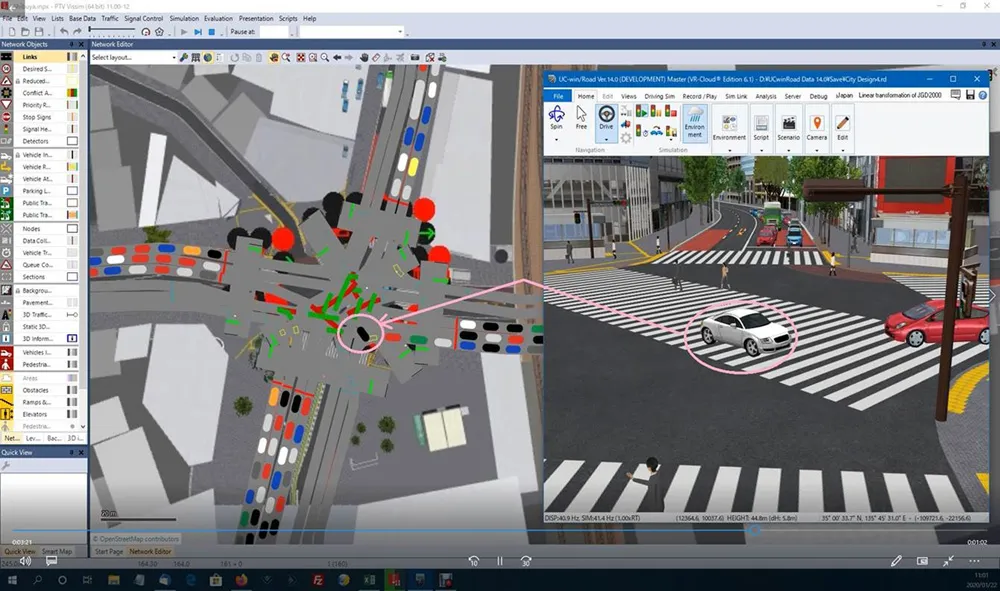
PTV Group has partnered with 3D virtual reality (VR) software specialist Forum8 to create clearer simulations of road environments.
Forum8's photo-realistic software, VR-Design Studio, is already used by transport planners and will now be paired with PTV's own traffic simulation solution, Vissim.
VR Design Studio creates models which can be imported into PTV Vissim in real time, creating a clear picture of vehicles and traffic signals so that simulated traffic patterns can be accurately visualised.
“The availability of the VR Design Studio API significantly enhances the functionality of PTV Vissim and enables mobility and transport consultants to present all stakeholders with a traffic impact assessment in an interactive 3D VR representation of their built environment,” said Forum8 western general manager Brendan Hafferty.
The companies say the combination "will also help cities, companies and communities save time and money, enhance road safety and minimise the impact on the environment of noise pollution and CO2 emissions".
“This is a major and growing requirement across the world as cities and countries work towards improving the problem of traffic congestion as well as meeting their decarbonisation targets," Hafferty adds.
PTV product manager Jochen Lohmiller comments: “Decision makers expect realistic visualisations of future infrastructure changes."









